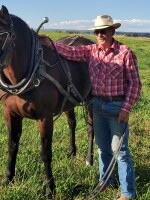Last week, Secretary of Agriculture Brooke Rollins pledged to help the passage of a farm bill by the end of the year, and is concerned that it hadn’t been passed yet, stating that “I understand there are a lot of factors out of the control of those who are making the decision, but there is a new game in town, and we will do everything we can, and my commitment to you is that we get a farm bill done by the end of this year." We can hope so, since the 2018 Farm Bill was extended until the end of September. She also is supportive of Health and Human Services Secretary Robert F. Kennedy's agenda concerning "make America healthy again, but she hopes to make sure that Kennedy doesn't impact farmers, while also working with EPA Administrator Lee Zeldin to roll back some of the regulations placed on pesticide applications under the Biden administration. She also intends to “unleash prosperity in rural America through a massive deregulation project."
Last week, Reuters reported that agricultural equipment Deere and Company investors voted overwhelmingly against a resolution aimed at its diversity, equity and inclusion efforts, which indicated that shareholders were opposed to anti-DEI measures even though executives had received Republican political pressure to scrap the company’s stand on Diversity, Equity and Inclusion. During a webcast of its annual meeting, executives said only 1.3% of votes cast were in support of a resolution calling on the company to report on racial and gender hiring statistics "to prove it does not practice discrimination." The resolution was filed by the National Legal and Policy Center, a conservative-leaning Washington think tank that has opposed a number of corporate diversity efforts. Two other resolutions aimed at restricting social action by Deere won similarly low levels of support.
As President Trump continues to beat the drum for tariffs, the U.S. Department of Agriculture’s trade outlook report is warning that imports of everything from avocados to coffee are expected to drive the country’s agriculture trade deficit to a record $49 billion this year. But at the same time, crops like corn and soybeans have been losing ground for several decades, which is a turnaround for our country, because at one time we used our abundant food supplies to for negotiations, influencing policies and sharing perspectives, and sometimes a little bit of arm twisting. But we’re now facing persistent agricultural trade deficits in the future, because the country has imported more food than it exported every year since 2023. Before then, the only other annual deficits were in 2019 and 2020, during President Donald Trump’s trade war with China, and several years prior to 1960.
The Department of Government Efficiency or DOGE has fired or caused to be fired thousands of government workers, many of whom worked in USDA agencies doing research that benefits farmers, ranchers and the public at large. But it appears that DOGE has offered up a whole raft of inefficiencies for this system by an ignorant DOGE team. For example, they have axed research concerning a wide range of diseases that affect crops and livestock that go to our trading partners, thus helping to balance some of our foreign trade. They are also cutting off critical research that helps to improve public health, thru mass producing penicillin. Now some of those who have been dismissed are being hired back because they are needed. I’ve begun to wonder if the name of the DOGE needs to be changed to DOGI, the Department of Government Inefficiency.
Financial company Ag America is warning farmers and ranchers that they should be ready for a “marginal squeeze” in 2025, because they expect net farm income to continue to decline, but maybe slower than in 2024. They cite lower prices for crops, particularly grains, oilseeds, and cotton, but these declines may be offset by strong cattle prices and lower feed costs. They expect that input expenses may stabilize, but higher labor and equipment costs will probably be a challenge, which may cause debt levels to rise, and operation loans harder to secure.
British Statesmen and author wrote, “Nobody made a greater mistake than he who did nothing because he could only do a little.”




